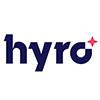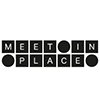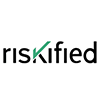The Covid Disrupters
Resources for businesses adapting to the new reality
Join our newsletter to stay up-to-date on New York – Israel resources.
Join Mailing List
Blue White Robotics

Carbyne

Fabric

Fiverr

Hyro

Obligo

Meet in Place

Monday.com

Riskified

TytoCare

VAST Data
Blue White Robotics
bwr.co.ilBlue White Robotics has developed a software platform system that enables users to manage an integrated network of autonomous vehicle fleets and robots from a single command center. Using BWR’s technology, farmers, for example, can deploy driverless tractors to spray their fields while seamlessly communicating with the aerial drones above that pollinate the crops. Although the platform has multi-sector applications, CEO Ben Alfi, who headed the Unmanned Aerial Systems and Special Devices unit of the Israeli Air Force, has focused on agriculture. With the coronavirus presenting problems along the food supply chain, Alfi’s decision to focus on farming has bolstered BWR’s technology as a viable option to address labor shortages and safety concerns. Earlier this year, New York State recruited the Tel Aviv-based company to open its U.S. headquarters in Central New York, which has already facilitated collaboration with Syracuse-based Dropcopter to pollinate Israeli date farms and New York apple orchards.
Carbyne
carbyne911.comCarbyne offers a suite of solutions to equip law enforcement agencies with dynamic tools to safeguard their communities and bring greater operational efficiency to emergency responses. Merging location services, live video chat, incident mapping, and other communication technologies into a single dashboard, Carbyne provides more real-time information to police officers entering potentially chaotic and stressful encounters. Carbyne, which moved its corporate headquarters from Tel Aviv to Manhattan in September 2019, has signed several county and city contracts, including in Colorado, Ohio, North Carolina, Minnesota, and Alabama. In March, as part of its effort to protect first responders from Covid-19 exposure, the City of New Orleans integrated Carbyne into its Emergency Communications Center.
Fabric
getfabric.comFabric is a warehouse fulfillment company that aims to use robotics and location to disrupt ecommerce. Situated in urban areas, its micro-fulfillment centers are serviced by proprietary robots that fetch items from shelves and transfer them to a fleet of floor robots that whisk product-filled baskets to processing and loading areas. Fabric is betting that the speed and efficiency of automation combined with the fulfillment centers’ proximity to customers will position the company to replace the same-day ecommerce delivery model with speedier two-hour delivery. In September 2019, the company shed its tedious name – CommonSense Robotics – and moved its headquarters from Tel Aviv to New York City. In early 2020, Fabric began construction on its first U.S. micro-fulfillment center in Brooklyn, which will be followed by a center in Long Island City. In July, Fabric announced a partnership with FreshDirect that will introduce two-hour delivery to the Washington, D.C. metro area. Covid-19 has spurred many grocers to upgrade online shopping experiences and delivery services, bringing immediate value to Fabric’s solutions. Further, Fabric’s ability to fill thousands of orders with only a handful of people managing the warehouse fulfillment sites offers a critical safety assurance during the pandemic.
Fiverr
fiverr.comIn January, according to the U.S. Bureau of Labor Statistics, the country’s unemployment rate was 3.5 percent. In June, that rate hit 11.1 percent. According to a United Nations estimate, the number of working hours lost over the second quarter of 2020 is equivalent to 400-million full-time job losses. Those bleak numbers have driven more and more workers to the gig economy, where they’re connecting to cost-conscious companies seeking freelance services. The basic supply and demand trend has accelerated growth for Fiverr, a marketplace platform for freelancers. Since March, when the coronavirus began to shutter offices, Fiverr’s stock has more than quadrupled. In its second quarter earnings report the publicly traded company continued its accelerated march toward profitability: In 2020, the company expects to generate between $177.5 and 179.5 million in revenue, further solidifying its prominent role in the job market.
Hyro
hyro.aiA start-up that spun out of the Johnson Cornell Tech MBA program on Roosevelt Island, Hyro brings AI-powered conversational interface to websites and platforms. After securing Weill Cornell Medicine as its first institutional client, Hyro was able to master a healthcare solution that would prove critical when Covid-19 concerns began to overwhelm hospital call centers. Hyro deployed a Covid-19 virtual assistant that it supplied free of charge to medical institutions, connecting concerned citizens with an AI FAQ bot to determine if they require additional medical attention. Hyro provided much-needed relief to the system and was able to gather medical data trends based on the keywords and queries submitted through its software. Its utility during the pandemic has accelerated Hyro’s expansion to medical institutions across the country.
Obligo
myobligo.comThe pandemic’s devastation on the economy has forced the federal government to find ways to put money back into Americans’ pockets. With roughly $50 billion worth of rental security deposits idling in escrow accounts in the U.S., Obligo offers a credit-based alternative to security deposits that requires tenants to pay for damages only when they occur, consequently keeping more money circulating throughout the economy. Other companies have attempted to disrupt the security deposit model with insurance-based solutions. In contrast, Obligo’s Open Banking technology and AI-based underwriting allows the company to focus on advanced screening and collection technologies – similar to hotels that use credit to collect room deposits from guests.
Meet in Place
meetinplace.comCoronavirus has roiled the commercial real estate market and companies are struggling to determine a safe and cost-effective way to transition employees back into office buildings. They’re also reassessing their long-term needs for office space. Tech companies such as Facebook, Twitter, and Square have already announced extended work-from-home plans, even beyond coronavirus. All the more so, for companies without their own campuses that require in-person gatherings, having on-demand access to meeting rooms and event spaces affords an attractive and flexible alternative to a full-time presence. Founded in 2016 in Tel Aviv, Meet in Place today offers 36 high-end meeting rooms in the Financial District, Midtown, and SoHo that can be rented as needed. As more companies consider scaling down physical office space requirements, Meet in Place’s rentable boardroom supply could be the shared office model of the future.
Monday.com
monday.comMonday.com is a cloud-based work operating system that brings intuitive functionalities to team management and task tracking. The platform helps groups customize workflow, communicate more effectively, and seamlessly integrate cross-functional teams of all sizes. With Covid-19 scattering employees to their respective homes, monday.com has quickly become the preferred platform for teams trying to maintain productivity, ensure accountability, and avoid communication breakdowns. The company boasts more than 100,000 paying customers across the world and, according to Bloomberg, saw its valuation jump from $1.9 billion to $2.7 billion during the pandemic.
Riskified
riskified.comRiskified helps online retailers safely approve more orders and increase revenue. The company estimates that 20 to 30 percent of legitimate customers are unable to complete their online transactions and get wrongfully declined due to leaks in the purchasing funnels, including bank declines and outdated merchant anti-fraud systems. Riskified’s AI platform solution detects fraud and authenticates shoppers, helping companies avoid losing revenue to fraud and lost sales. Riskified pledges a 100 percent chargeback guarantee if a fraudulent transaction slips through its technology, which is trusted by merchants across the globe, including by Gucci and Samsung. As Covid-19 drives more retail shopping online, the need to guarantee transactions has never been greater.
TytoCare
tytocare.comTytoCare combines hardware and software to bring simple, high-quality telehealth visits into homes all over the world. The TytoHome is a palm-sized device that contains an LED screen, a digital thermometer, and a camera. The module connects to an array of medical accessories and instruments, which allow doctors to conduct remote medical exams that can include checking a patient’s temperature, ears, lungs, heart, throat, skin, and abdomen. Recently awarded Extreme Tech Challenge’s top prize in the Covid-19 category, Tyto is the first commercially available self-administered audiovisual diagnostic system. Israeli hospitals have also been using TytoHome to remotely monitor lung function and fever of homebound Covid patients and even determine the safety of releasing them from quarantine. Beyond coronavirus, Tyto offers the ability to reduce in-person visits to doctor offices and hospitals and afford patients anywhere in the world access to doctors.
VAST Data
vastdata.comVAST Data brings high-performing and dependable AI technology to data storage. Its architecture reduces the power, space, and cooling requirements from data centers, thereby lowering costs and optimizing efficiencies. The result is a game-changing storage technology that paves the way for deep analytics on immense amounts of data, in real-time. Scientists at the National Institute of Health, Harvard University, and Gingko Bioworks are using VAST Data’s technology to rapidly analyze massive data sets to research possible treatments for Covid-19. VAST Data assures the laboratories that storage won’t impede genome sequencing and experimentation, which can both require powerful computing capabilities. In April, as Covid-19 research in the United States surged, the company closed a $100 million funding round that bumped its valuation at $1.2 billion.

